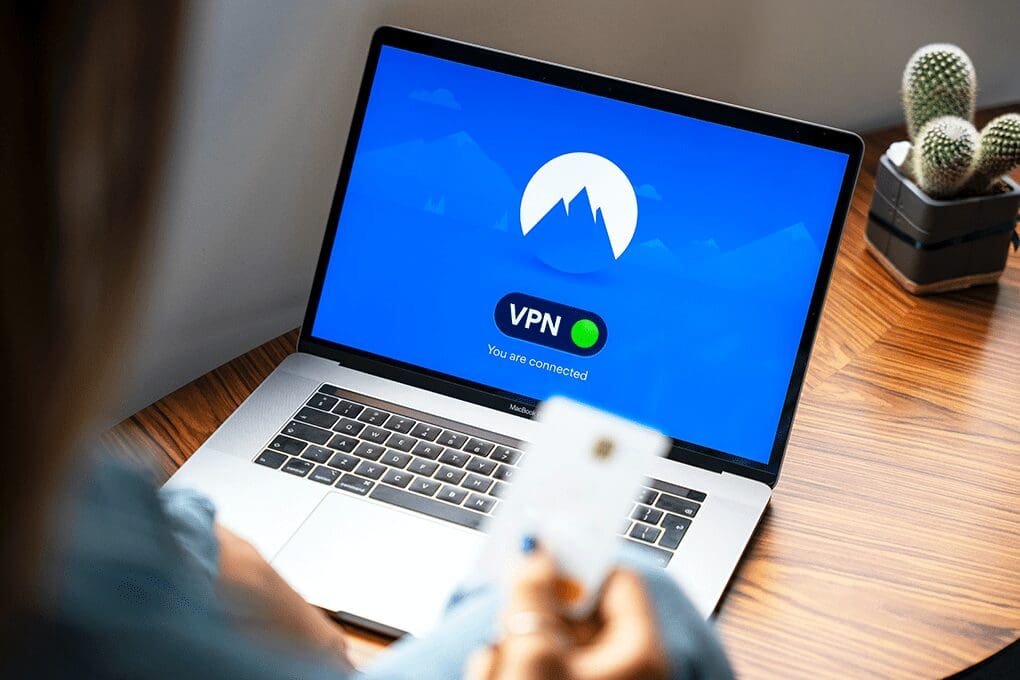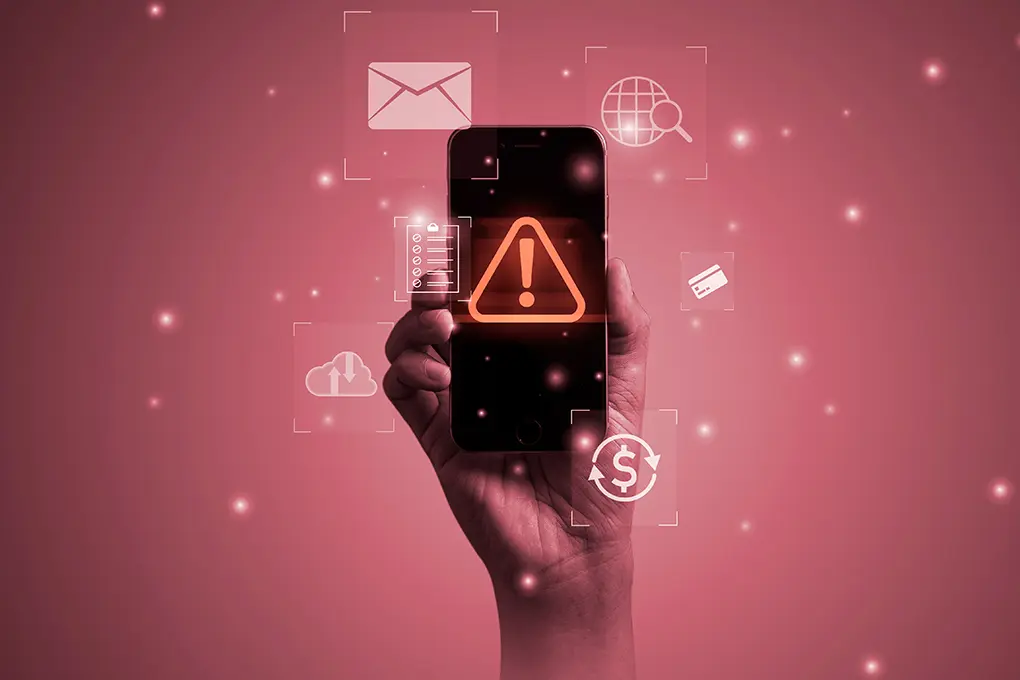Every minute, Americans lose over $13,000 to financial fraud. It’s not just the elderly or inexperienced being targeted – sophisticated scammers are fooling even financial professionals with increasingly clever schemes. From investment scams to payment app fraud, a single momentary lapse in judgment can cost you your life savings.
But while financial fraud is growing more sophisticated, you don’t have to be an easy target. Between romance scams costing victims an average of $24,000 and business email compromise schemes leading to losses in the millions, understanding how these scams work is your first line of defense.
This guide breaks down:
- The most common types of financial fraud
- Red flags that signal a potential scam
- Practical steps to protect your money
- What to do if you become a victim
- Tools and services that can help
Contents
Key Takeaways
- Financial fraud affects hundreds of thousands of people in the US every year and many more around the world.
- There are many kinds of financial fraud, with everything from mortgage fraud and credit fraud to phishing and identity theft. We will cover some of the major forms of financial fraud to show you some of what you may be up against.
- Financial statement fraud can be detected by monitoring all finances closely or using an external auditor. Keeping a close eye on all transactions and inventory will help you to detect it early and notify the proper institutions and authorities.
- You can prevent financial fraud with a number of different methods. These can include ignoring suspicious SMSs and emails and checking credit reports to using a password manager or a VPN. We will go over some other ways you can easily protect yourself.
How Many People Does Financial Fraud Affect Each Year?
The amount of people that are affected by financial fraud each year can vary wildly, but one common factor is that it’s a huge number each time. Different sources show that every year, hundreds of thousands of Americans fall victim to financial fraud. Around the world, this number is even higher, as these types of crimes become more and more common.
The cumulative losses for these cases of fraud can be in the billions in the US alone. That shows that everyone can be at risk of financial fraud; from top executives to people working minimum wage.
You are certainly at risk if you don’t safeguard yourself against the many types of financial fraud.
For more details on data protection, you can read through this previous article on some of the top data protection trends.
What Are The Different Types Of Financial Fraud?
There are so many different types of financial fraud, but we have a selection of some of the most common ones that you should look out for.
Credit And Debit Financial Transaction Fraud
Credit and debit cards are used for many transactions every day, so it’s only natural that credit and debit fraud would be some of the most common instances of fraud.
This kind of fraud can include physical credit card theft to theft of information that would allow someone to make unauthorized purchases with your card. This kind of fraud is important to catch early, as a scammer or thief can get away with stealing a large amount of money if you don’t block the card soon enough.
Mortgage Fraud
A mortgage can be a huge financial decision and obligation for any property owner, so having it exploited for fraud can be quite devastating. Mortgage fraud can occur when someone creates or misrepresents information in a fraudulent way in order to acquire funding unlawfully.
This will often be done by a third-party scammer at the expense of the actual property owner trying to pay their mortgage. They often will only know fraud has occurred when they get warnings or large bills from the bank funding the mortgage.
In the past, we have seen how a stolen identity can even affect your ability to apply for a mortgage in the first place.
Phishing
Fishing is a highly relaxing pass time, but there is nothing relaxing about phishing. Phishing involves tricking people into revealing information like passwords and authentication codes.
One way this can be done is by creating a fake version of a website and prompting someone to log in. The scammer will then see their login information and then use it on the actual website.
It can be surprisingly easy to fall for phishing scams, so one should always ensure that they are using legitimate websites and services.
Debt Collection Fraud
No one likes to hear that they owe a debt to someone. If you receive a convincing message saying that you owe money, it may come as a surprise that you want to get rid of as soon as possible.
Scammers may send false debt alerts that prompt you to pay money for a debt that either doesn’t exist or that has already been sorted out. You should never pay any debts unless you can verify that it’s all legitimate.
Financial Statement Fraud
Financial statement fraud is less common for everyday people than other items on this list. It typically involves companies creating false financial records to trick investors and other parties into thinking the company is more profitable than they are.
This is usually done to acquire undeserved funding that wouldn’t be possible if the true nature of the company’s earnings were disclosed.
Identity Theft
Identity theft can be really scary when it happens, and it has been known to ruin people’s lives. It can take many different forms, from forging identity documents to using stolen information to masquerade as someone else.
Identity theft can be used to steal money but also to besmirch someone’s reputation by saying harmful things and then making it look like the original person said it. This is a very brief explanation of identity theft fraud, but it’s definitely something everyone needs to be well aware of.
We have previously covered some of the most compelling reasons you need protection against identity theft, so that’s well worth a read for a deeper dive into the subject.
Insurance Fraud
Insurance fraud is fairly common, and it too can take many different forms. This is often done by overestimating the value of damaged or stolen assets, and some people go as far as to stage a large theft so that they can claim the insurance on the ‘lost’ goods.
Prize And Lottery Fraud
Who doesn’t like hearing that they have won an incredible prize? It can be easy to get lost in the excitement of winning a prize that you may be quick to provide personal information to claim your prize.
Scammers will often exploit this to get information or money from you. If you have an email address, chances are you have seen dozens of spam emails informing you that you have won a large sum of money or a piece of expensive tech.
You should always be careful not to respond to any ‘too good to be true’ winnings, especially if you never entered a contest or if it seems suspicious and illegitimate in any way.
Fake Charities
Of all the items we have listed, this has to be one of the saddest tricks that people pull. Real charities are important in helping poor and disenfranchised people receive funding to make their lives a bit better.
Scammers may create a fake charity that could involve a fake sob story that gets kind-hearted strangers to donate money to a fake cause. It’s awful that people would use the kindness and compassion of others to make a quick buck. That’s why you need to be careful and do some research even when donating to a worthy cause.
How To Detect And Prevent Financial Statement Fraud
If you’re an investor looking to invest in a company, financial statement fraud is something you will need to be on the lookout for. Investments will always take a company’s earnings and financials into account, and companies that aren’t doing so well will probably get a smaller investment.
That’s why some unscrupulous companies may cook the books to make themselves look a lot more profitable than they actually are, and that may get you to invest a lot of money into a dying business.
There are a few ways that you can prevent this fraud. For starters, you can use your intuition and see if things add up on a surfacer level. If you’re investing in a bookstore, for example, and they claim that they are making huge profits every day, you can investigate this. If you visit the store several times a week and there are no customers and shelves full of books, then that would make it hard to believe that they’re making the profits they claim.
You can also take a closer look at their records and look for anything that looks off. One of the best ways to prevent it is by hiring an external auditor to go over their records and see if they’re legitimate.
9 Best Practices To Avoid Financial Fraud
1: Be Cautious Of Unsolicited Offers Via Phone And SMS
If you ever receive an unsolicited call, SMS, or email purporting to be from a company or service, you should always be on guard. This is especially pertinent to keep in mind if they ask for any personal information, as most legitimate companies won’t do that via these means.
If you’re even a bit suspicious, tell the person that you’re uncomfortable giving information over the phone and then contact the supposed company yourself to verify whether it was legitimate.
2: Keep Your Personal Information Private
This may seem obvious, but it’s surprisingly easy to give out information that you shouldn’t. You should be very cautious with the information you give out over the phone, and you should certainly never give out pins or login information.
You should also be sure to properly store or destroy any paper documents that someone may find and use against you.
We have also looked at how two-factor authentication can help to keep your login information safe.
3: Use A Password Manager
Security experts recommend using strong and varied passwords for each service you use and also suggest changing them fairly frequently. This is good for safety, but gives you a lot to remember, which can be frustrating.
Using a password manager is a great idea, and one of the best ones that we recommend is 1Password. Services such as this will save all your passwords and store them for you so that you can keep yourself secure without locking yourself out of your accounts accidentally.
If you’re new to using password managers and are unsure of what they offer, we have a comprehensive review of 1Password that will give you more information.
4: Periodically Check Your Credit Reports-
Most scams rely on you not being as vigilant as you should be, and that’s why it’s well worth making an effort to check your information. By regularly checking your credit reports, you can keep a lookout for any suspicious activity or anomalies.
Aura credit monitoring is a great service that will do this for you so you never have to worry about it. They will monitor and safeguard your credit information and alert you to any potential fraud. It’s certainly a worthy investment that will provide a lot of peace of mind regarding credit fraud.
If you would like more information on Aura and what it offers, we have this comparison between Aura and Total Digital Security which goes over many of the key features and benefits.
5: Report Suspicious Account Activity
If you do notice some strange or unauthorized activity, you should report it to the proper people. This could include reporting to the authorities or the companies and services associated with the compromised account.
The sooner you report these breaches, the better you can protect yourself.
6: Be Careful When Transferring Money
Whenever you need to transfer money, you should always do a bit of research. One way is to make sure you’re sending money to a verified, secure company or person. If anything seems slightly fishy, then you should definitely look into it a bit more. You can never be too careful when sending money, so don’t let anyone pressure you into making a rash payment if you need to do more research.
7: Use A VPN When Managing Online Finances
VPNs (Virtual Private Networks) have become more and more popular in recent years. They provide unprecedented anonymity and protection on the internet, and they also allow people to access content that would be otherwise unavailable.
Using a VPN for managing online finances will make it much harder for scammers to track and monitor you, adding an extra layer of security.
Nord VPN is one of the top VPN services, and they have certainly earned its reputation as one of the best ones on the market. We highly recommend using Nord VPN to not only make your financial transactions safer but also your internet usage in general.
Using a VPN for the first time can seem confusing and intimidating, so we recommend using this guide on how to start using a VPN to make it much easier.
8: Use Fraud Protection Software And Monitoring
The more protection you have against fraud, the better. You can never go too far with the amount of protection you use against fraud. We have listed a few services that can get you started, but you should also be sure to use any other services such as an antivirus or other protection software types that can shield you against attacks.
The Bottom Line: Your Defense Against Financial Fraud
Financial fraud may be on the rise, but you now have the knowledge and tools to protect yourself. Like having good locks on your doors and security cameras for your home, a combination of vigilance and the right protective measures can dramatically reduce your risk of becoming a victim.
Remember:
- Stay informed about new scam tactics
- Use strong digital security measures
- Monitor your accounts regularly
- Trust your instincts when something feels wrong
- Act quickly if you spot suspicious activity
While no protection is perfect, taking these steps puts you miles ahead of those who hope it won’t happen to them. By staying alert and using the right protective tools, you can help ensure your financial security remains intact.




